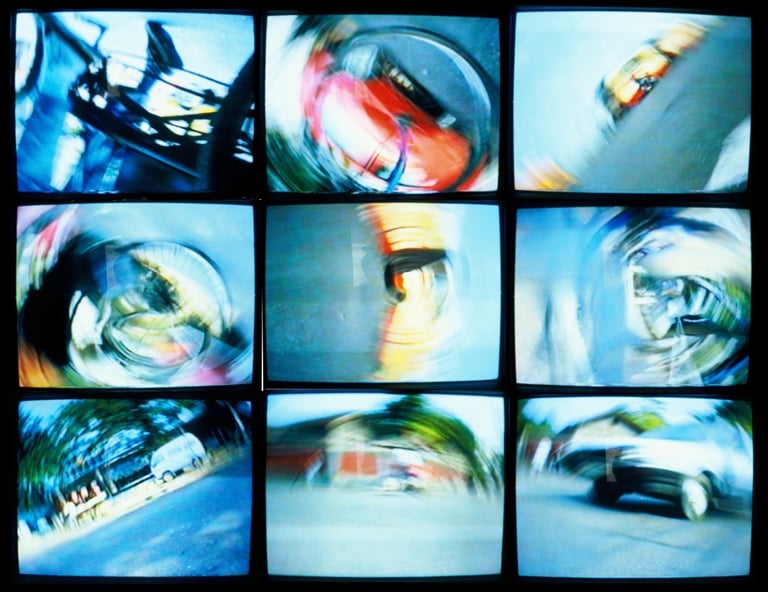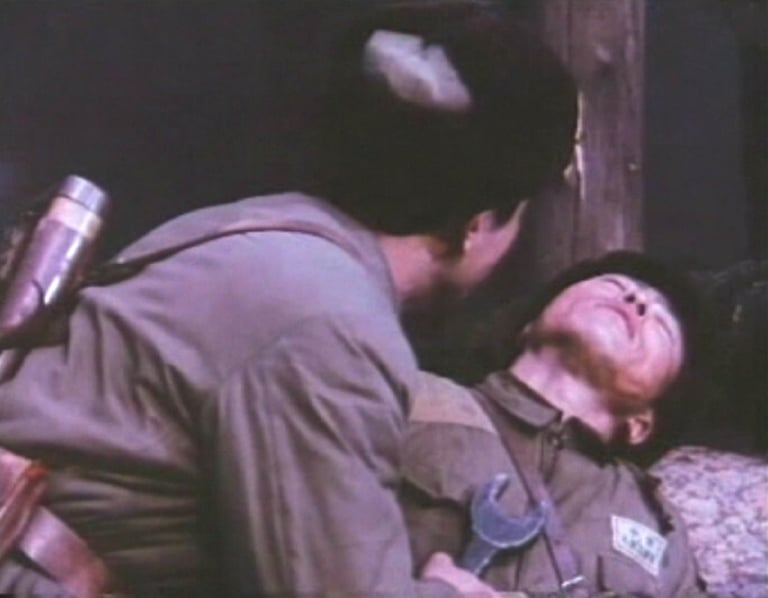Weaving the Past and Present with Zhang Peili and Zhu Jia
This past weekend I ventured off to see Not Only Time, a free exhibit featuring Chinese artists Zhang Peili and Zhu Jia, at the RedCat. Though both artists earned degrees in oil painting, they have joined the ranks of Chinese artists who use video and digital media as their medium of choice. Often at the stake of governmental and/or western infiltration, Chinese artists turned to video as a means of experimentation, not solely for aesthetic purposes, but as a means to document and respond to the political, social and economic changes during and after the Cultural Revolution and Tiananmen Square riots in 1989. Video was easy to use, accessible, and easily circulated, which contributed to the widespread emergence of video art in Chinese contemporary art.
The exhibit encompasses two rooms, a larger space and a video room. In the larger space were four pieces, three of which were video projections and one of which was a 12-channel video installation of TV monitors. In “Forever,” Zhu attached a video camera to one of his bicycle wheels and recorded the streets of Beijing, exploring both the formal and recordable qualities of video. Upon the first viewing, I immediately got dizzy, as the screen spun repeatedly in circles, but as the video elapsed, the streets became more and more populated with cars and commercial vehicles, and bicycles soon dissipated from the scene. The constant revolutions of Zhu’s bicycle wheel, coupled with the increase of commercial vehicles and the proportional decrease of bicycles, may be a response to the constant transformation of old and new Beijing, of old and new China.
Sticking with the idea of a New China, Zhu’s “Steaming” uses video as a simple recording device as it pans across a large group of middle school students after a physical education class. The students, not one individualized, are steaming with sweat, but are motionless and still. Some have funny misspelled English phrases on their shirts, a tribute to commercialization. The deadpan faces may be Zhu’s attempt to comment on China’s future, as these kids, unknowingly, are due to inherit China’s wealth and future whether they are ready or not.
In the video room, Zhang uses movie clips from Chinese socialist realist cinema as the basis for “Last Words,” critiquing the contrived and artificial patriotism during the Cultural Revolution. He selected clips from Communist propaganda films where Communist heroes, young and old, breathlessly gasp for their last words before their death. Heightening the theme of death, the clips were each repeated four times, an unlucky number in Chinese culture, which when pronounced, sounds like the Chinese word for “death.” However, the Communist heroes are not the only ones dying, as “Last Words” pays a final tribute to the old memories of Chinese Communist ideology.
Zhang and Zhu’s first show in Los Angeles introduces us to the changing ideologies of modern China. Using video, both artists transcend the past and present through documenting and responding to social and political realities without neglecting their individuality.


stills from Forever (1994), Zhu Jia


